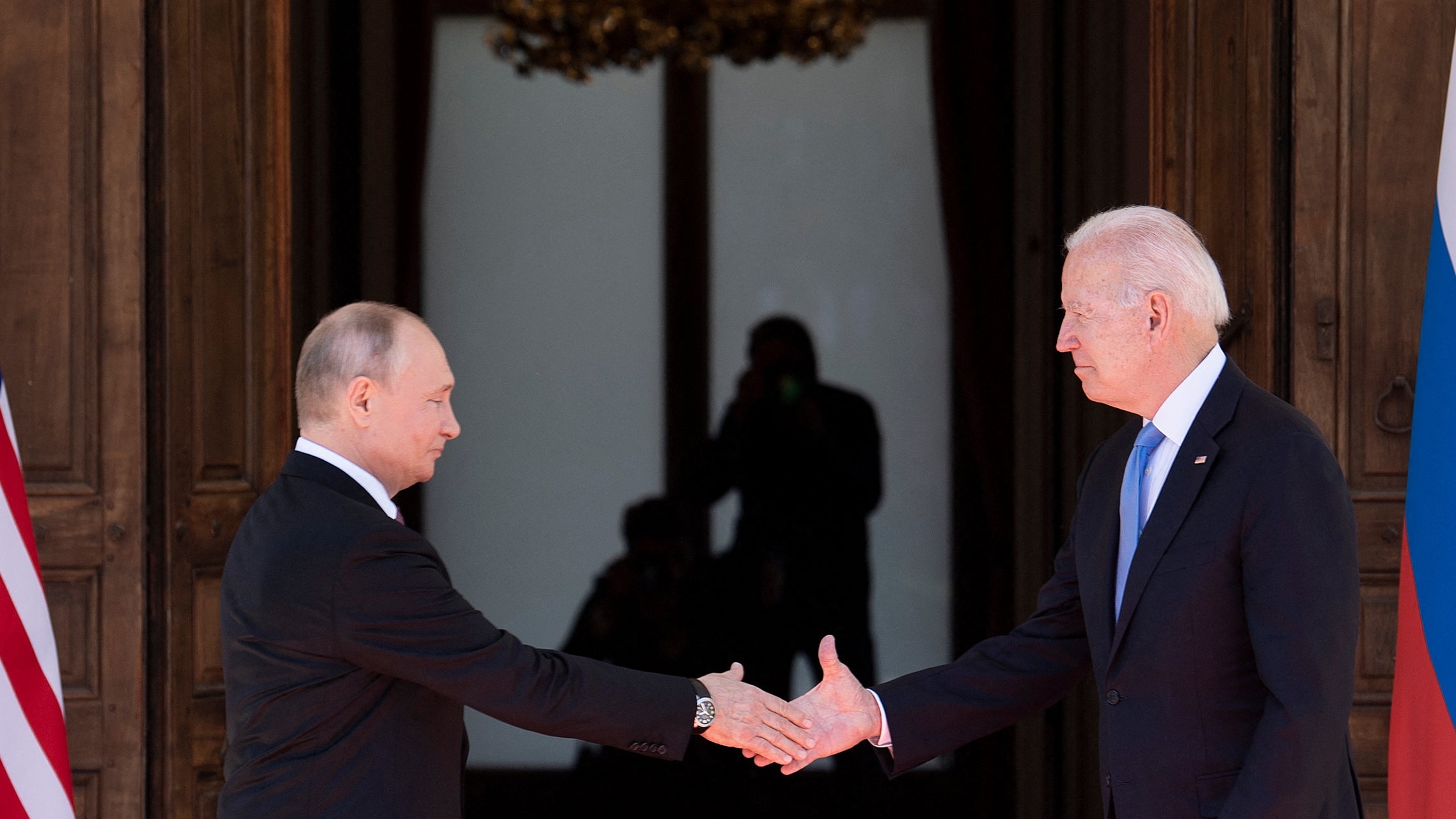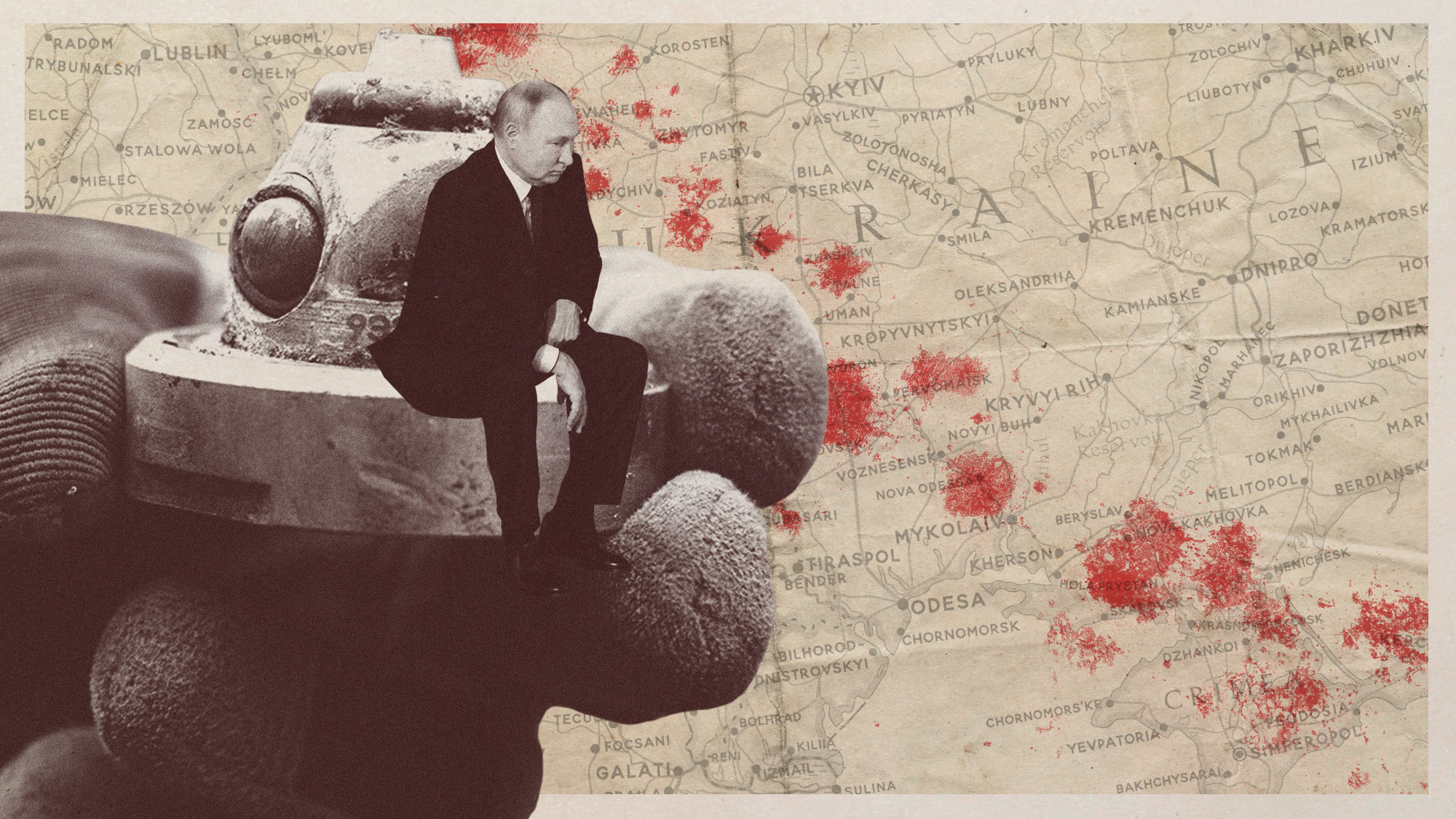Washington and Moscow working to ‘quietly’ forge closer relations
Secretive meetings part of ‘more sober’ approach to dealings between US and Russia

A free daily email with the biggest news stories of the day – and the best features from TheWeek.com
You are now subscribed
Your newsletter sign-up was successful
Government officials in Washington and Moscow are engaged in a “flurry” of behind-the-scenes talks amid efforts to bolster relations between the US and Russia.
Representatives of both countries told The New York Times (NYT) that the “beneath-the-surface” negotiations have “so far yielded little of substance but help to prevent Russian-American tensions from spiraling out of control”.
“It might seem as if little has changed for Russia and the US,” the paper added, with “two old adversaries seeking to undercut each other around the world”. But “beneath the surface brinkmanship, the two global rivals are now also doing something else: talking”.
The Week
Escape your echo chamber. Get the facts behind the news, plus analysis from multiple perspectives.

Sign up for The Week's Free Newsletters
From our morning news briefing to a weekly Good News Newsletter, get the best of The Week delivered directly to your inbox.
From our morning news briefing to a weekly Good News Newsletter, get the best of The Week delivered directly to your inbox.
‘Working relationship’
Speaking at an energy conference in Moscow two months ago, Vladimir Putin “called on the US and his country to gradually restore relations”, The Independent said.
Addressing the Russian Energy Week International Forum, the president spoke about “issues ranging from European energy and defence policy to US sanctions”, the paper added.
Putin said he currently has a “working” relationship with Joe Biden, adding that “no one won” under the current regime of sanctions put in place by the White House.
A free daily email with the biggest news stories of the day – and the best features from TheWeek.com
At the same time, Biden has “shown a willingness to work with Russia in conversations with Putin”, reported the paper, “while vowing to hold Russia accountable for further efforts to attack US interests”.
“My bottom line is this: there is an interest in the United States to work with Russia. We should and we will,” Biden told reporters in early October. But “when Russia seeks to violate the interests of the United States, we will respond”.
While public pronouncements by both Moscow and Washington hinted at the possibility of cooling relations between the two major powers, behind the scenes “a serious conversation” was already under way, the NYT said.
A summit between Biden and Putin in Geneva in June “touched off a series of contacts between the two countries”, the paper continued. This included “three trips to Moscow by senior Biden administration officials since July, and more meetings with Russian officials on neutral ground in Finland and Switzerland”.
These “quiet” negotiations have resulted in the “deepest” talks around arms control “in years”, the paper added, as well as spurring a discussion over whether Putin would be willing to “facilitate a crackdown on ransomware and other cybercrime”.
If the talks are able to produce results, it will be because “what the Russians hate more than anything else is to be disregarded”, Fiona Hill, who served as the top Russia expert under Donald Trump before testifying in his impeachment hearings, told the paper.
“They want to be a major player on the stage, and if we’re not paying that much attention to them they are going to find ways of grabbing our attention.”
Uneasy truce
The relationship between Washington and Moscow is by no means perfect, with Putin’s decision not to attend Cop26 in Glasgow placing further pressure on the pair.
Biden said on Sunday that he “blamed Russia and China for any disappointment over the level of commitment by G20 leaders to fight climate change” during their conference in Rome last week, Politico said.
“With regard to the disappointment, the disappointment relates to the fact that… not only Russia but China basically didn’t show up in terms of any commitments to deal with climate change,” he told reporters. “And there’s a reason why people should be disappointed in that,” he added. “I found it disappointing myself.”
The president made clear that “he expected significant progress in Glasgow” at Cop26, The Telegraph said. “It’s going to require us to continue to focus on what China’s not doing and what Russia is not doing,” he added.
Russia, despite Putin’s decision not to attend, has said “they will still send a strong delegation and that climate change remains a priority for the country”, said the BBC’s environment correspondent Matt McGrath.
But “it will undoubtedly be a disappointment” that Putin has declined an invitation to attend in person given hopes that the president “would be open to making progress on a number of issues, including deforestation”, he added.
For the US, “outreach” to Moscow “is fraught with risk”, the NYT said. The main danger is “exposing the Biden administration to criticism that it is too willing to engage with a Putin-led Russia that continues to undermine American interests and repress dissent”.
Meanwhile, European officials also “worry Russia is playing hardball amid the region’s energy crisis”, while “the destructive nature of Russia’s cybercampaign” against the US has “officials particularly concerned”.
Biden’s “measured approach” has, however, “earned plaudits in Russia’s foreign policy establishment”, the paper added. And from Washington’s perspective, “the talks are a way to try to head off geopolitical surprises that could derail Biden’s priorities”.
“Biden understands the importance of a sober approach,” Fyodor Lukyanov, a foreign policy analyst who advises the Kremlin, told the NYT. “The most important thing that Biden understands is that he won’t change Russia. Russia is the way it is.”
-
 Political cartoons for February 14
Political cartoons for February 14Cartoons Saturday's political cartoons include a Valentine's grift, Hillary on the hook, and more
-
 Tourangelle-style pork with prunes recipe
Tourangelle-style pork with prunes recipeThe Week Recommends This traditional, rustic dish is a French classic
-
 The Epstein files: glimpses of a deeply disturbing world
The Epstein files: glimpses of a deeply disturbing worldIn the Spotlight Trove of released documents paint a picture of depravity and privilege in which men hold the cards, and women are powerless or peripheral
-
 New START: the final US-Russia nuclear treaty about to expire
New START: the final US-Russia nuclear treaty about to expireThe Explainer The last agreement between Washington and Moscow expires within weeks
-
 What would a UK deployment to Ukraine look like?
What would a UK deployment to Ukraine look like?Today's Big Question Security agreement commits British and French forces in event of ceasefire
-
 Trump peace deal: an offer Zelenskyy can’t refuse?
Trump peace deal: an offer Zelenskyy can’t refuse?Today’s Big Question ‘Unpalatable’ US plan may strengthen embattled Ukrainian president at home
-
 Vladimir Putin’s ‘nuclear tsunami’ missile
Vladimir Putin’s ‘nuclear tsunami’ missileThe Explainer Russian president has boasted that there is no way to intercept the new weapon
-
 How should Nato respond to Putin’s incursions?
How should Nato respond to Putin’s incursions?Today’s big question Russia has breached Nato airspace regularly this month, and nations are primed to respond
-
 Russia’s war games and the threat to Nato
Russia’s war games and the threat to NatoIn depth Incursion into Poland and Zapad 2025 exercises seen as a test for Europe
-
 What will bring Vladimir Putin to the negotiating table?
What will bring Vladimir Putin to the negotiating table?Today’s Big Question With diplomatic efforts stalling, the US and EU turn again to sanctions as Russian drone strikes on Poland risk dramatically escalating conflict
-
 Ottawa Treaty: why are Russia's neighbours leaving anti-landmine agreement?
Ottawa Treaty: why are Russia's neighbours leaving anti-landmine agreement?Today's Big Question Ukraine to follow Poland, Finland, Lithuania, Latvia and Estonia as Nato looks to build a new ‘Iron Curtain' of millions of landmines